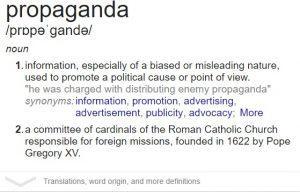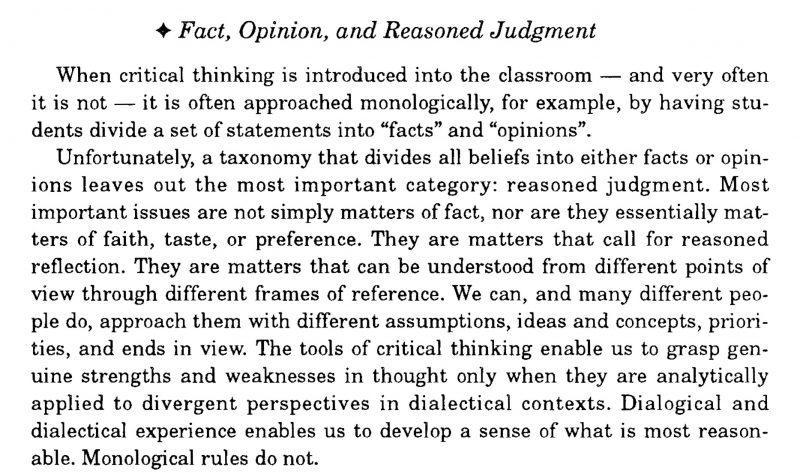Here is how to spot politically and/or financially motivated science, which is science that furthers political and/or financial agendas and interests. Motivated science could be used as propaganda for an agenda, or could be supported by propaganda in the form of advertising and media coverage, to ensure financial and other forms of gain.
“The product of scientific achievements should be for sale. The scientist should not.” ~A.E. Samaan
 True science will have an ongoing dialogue of ideas and interpretations of the scientific data, and it will not seek to silence dissenting opinions with insults or fear mongering. Truth does not need to resort to anger or name calling, because it’s true. If you see a lot of media attention around an idea, and with that attention there is a lot of rhetoric that demonizes anybody that denies the so-called science, especially if it paints opponents in a bad emotional light and believers in a good emotional light — it is probably fraudulent and politically/financially motivated science. The ad hominem insult of “science denier” is also a good indicator that they’re uninformed and defending from an emotional bias, and not from the truth — it’s hard to get angry about the truth, and yet they’re very angry. If somebody looks at me and says “you’re a girl”, I won’t get defensive or upset, because it’s clearly a baseless and silly claim, and obviously an attempt at making me feel bad emotionally.
True science will have an ongoing dialogue of ideas and interpretations of the scientific data, and it will not seek to silence dissenting opinions with insults or fear mongering. Truth does not need to resort to anger or name calling, because it’s true. If you see a lot of media attention around an idea, and with that attention there is a lot of rhetoric that demonizes anybody that denies the so-called science, especially if it paints opponents in a bad emotional light and believers in a good emotional light — it is probably fraudulent and politically/financially motivated science. The ad hominem insult of “science denier” is also a good indicator that they’re uninformed and defending from an emotional bias, and not from the truth — it’s hard to get angry about the truth, and yet they’re very angry. If somebody looks at me and says “you’re a girl”, I won’t get defensive or upset, because it’s clearly a baseless and silly claim, and obviously an attempt at making me feel bad emotionally. Often, people will want to believe such emotionally charged scientific claims in order to seem like they are a reasonable and morally upright person, because of the “this means that” logical fallacy. “THIS” (believing the motivated science) “MEANS THAT” I’m smart, approved of, likable, reasonable, open-minded, tolerant, and compassionate. Conversely, “THIS” (disbelieving the motivated science) “MEANS THAT” I’m dumb, ignorant, unreasonable, closed-minded, bigoted, and heartless. In such discussions, science isn’t being defended, because hidden underneath the arguments about the science are assumptions about their own character and ability — and this motivates their reasoning; they are defending themselves and not the science.
In a true intellectual and scientific environment there is a diversity of ideas, meaning that diverse opinions and ideas are welcomed as a system of checks and balances to help improve the overall quality of the objective truth being sought. Maintaining a diversity of ideas for solving complex problems is a necessary part of “dialogical thinking“, which is a form of “multilogical thinking“, and unfortunately, it is rarely taught in high school or universities. In fraudulent and motivated intellectual and scientific environments, people are afraid of contributing ideas that may contradict or oppose the official narrative, as they can lose their reputation, credibility, livelihood, and even risk bodily harm.
Here’s a list of topics where bad science is promoted and defended, and good science is ridiculed, whitewashed, and even covered up:
- Vaccinations
- Man made climate change
- More than two genders
- Most pharmaceuticals
- Suppressed cures for cancer
- GMO foods
- Pesticide and insecticide safety
To sum it all up, if there is open dialogue and a diversity of ideas, then it is probably good science; and even if tempers flare, it is at least moving in the correct direction because of the intention to maintain an open ended dialogue. However, if dialogue is suppressed, or if the dialogue is contained within an uneven “monkey trial” setting, where dissenting opinions are silenced and ridiculed with often repeated talking points (especially in the media), then it is probably politically and/or financially motivated science.
